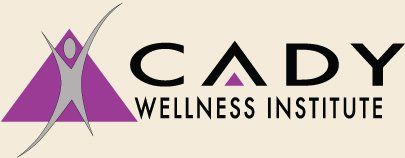Hormone Therapy Information for Men
Optimizing Human Function
Treating Psychiatric Conditions
Weightloss & Body Sculpting
Hormone Therapy Solutions for Men in Newburgh
While it is natural for your testosterone levels to decrease as you age, certain levels of testosterone and still required for male sexual development and reproductive functions, building and maintaining muscle, and sustaining healthy red blood cell counts. If you notice that these functions are decreasing as you get older, this may be because of your naturally lowering testosterone levels.
This is not something to be entirely concerned about because there are safe and natural solutions to hormonal issues and imbalances. If you are struggling with your hormone levels, call the professionals at Cady Wellness Institute to learn about your therapy options and to get started with your hormone therapy today.
Common Male Hormone Problem Information
In men, the usual hormonal deficiency that gets their attention is low testosterone. This frequently produces problems with erectile difficulty as well as loss of libido. Low testosterone in men usually results in decreased enjoyment of life, decreased energy, increased fatigue and lethargy, a tendency to sit around like a couch potato, decreased muscle tone, and decreased performance in the gym as well as the bedroom.
DHEA and Cortisol
These are critical hormones secreted by the adrenal glands that sit on top of the kidneys. They help you deal with stress. If you are perpetually stressed, these glands can become exhausted, leading to “adrenal burnout,” or simple exhaustion in the prime of your life.
There are very good, simple, painless “spit in the tubes” tests to check out your adrenal hormones with saliva samples, and these work very well. These are almost ridiculously easy to improve with supplementation, and with a resultant dramatic restoration of function, but they have to be measured and you have to be diagnosed, first!
Insulin and Cortisol
These are like two kids on either side of a teeter-totter. One (insulin) makes the blood sugar go down, and the other (cortisol) makes it go up. Over-consumption of sugary foods and simple carbohydrates can spike insulin, making you “hyperinsulinemic” and pre-diabetic.
Excess stress can make your cortisol stay up, and then the two hormones will duke it out. There are excellent lab tests to assess this. Frequently, at CWI we see patients who are having severe psychiatric-appearing symptoms due to simple blood sugar issues involved in the disrupted balance between these hormones.
IGF-1
In some cases, growth hormone is low, manifested by a low level of “IGF-1.” Treating this is controversial, but there is a recognized condition called “Adult-onset growth hormone deficiency.” Usually, a patient’s IGF-1 level is fairly reasonable.
A low level of growth hormone (measured by IGF-1), however, is associated with:
- Decline in mental function and “sharpness”
- Loss of enjoyment in life
- Decline in muscle mass
- Increase in fat around the middle
- Decreased libido and sexual performance
- Increased depression
NOTE: We do not use human growth hormone here at CWI and are certainly not a growth hormone clinic. If necessary, we will use more holistic methods to naturally enhance IGF-1.
Androgen Deficiency in the Aging Male (ADAM) Assessment Questions
The Androgen Deficiency in the Aging Male “ADAM” questionnaire is a useful tool for screening and self-assessment to detect men at risk for androgen deficiency:
- Do you have a decrease in libido (sex drive)?
- Are your erections less strong?
- Do you have a lack of energy?
- Do you have a decrease in strength and/or endurance?
- Have you lost height?
- Have you noticed a decreased “enjoyment of life?”
- Are you sad and/or grumpy?
- Have you noticed a recent deterioration in your ability to play sports?
- Are you falling asleep after dinner?
- Has there been a recent deterioration in your work performance?
If you answered “yes” to either of the first two questions OR if you answered, “yes” to three other questions, you have androgen deficiency (low testosterone).
Adapted from Morley et al. Metabolism. 2000;49(9):1239-1242. Questions reordered by Cady Wellness Institute for clarity and ease of scoring.
Managing Andropause Symptoms
Some additional defining symptoms of androgen deficiency we look for include:
- Poor recovery from exercise
- Pain/ stiffness in joints and muscles
- Forgetfulness
- Anger
- Weight gain
- Loss of drive and competitive edge
- Loss of sex drive
- Inability to concentrate
- Loss of muscle strength
Your first step towards reclaiming your life and vitality is to schedule a consultation with our hormone intake specialist, Whitney Gabhart, ND, at the Cady Wellness Institute. Louis B. Cady, MD will order labs to determine your individual hormone level, and both doctors will collaborate to select the bioidentical hormone solution that best suits you. Call us today to learn more and schedule an appointment.
Expert Hormone Therapy Options for Men
Call Us to Schedule an Appointment
(812) 429-0772
VISIT US
HOURS
HOURS
Hours by Appointment
Flexible Scheduling


Share On: